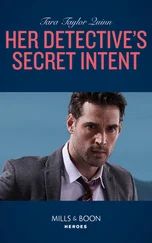“Remind me why we care about the things we care about.”
“This sounds serious.”
“Have you ever regretted what you gave up to be who you are?” Randi asked before she realized how stupid the question sounded. Barbara was at the top of her career, making more money than Randi had seen in years. Kind of hard to regret.
“Yeah.”
Randi dropped the pencil, leaning back in her chair with one foot propped on the desk in front of her. “Yeah?”
“There are downsides to everything.”
Of course there were. For every mountain climbed, a valley lay on the other side. Randi knew that, counseled her young athletes with such truths at every banquet she attended, every speech she gave. Without the bad, how could one measure the good? With no losers, there could be no winners.
But…
“So what do you regret most?”
“Same thing you do, I imagine,” Barbara said, her no-nonsense voice tinged with the warmth she reserved only for those she considered real friends. “The circuit, the training, the life of a professional athlete, particularly a female professional athlete, exacts its price. You have to have complete focus, keep your mind and heart on one goal—to be the best. And suddenly you aren’t a kid anymore with your whole life stretching before you.”
Her fingers straightening the lace on her tennis shoe, Randi froze.
“You wake up one morning and find yourself all alone in a world of couples,” Barbara continued.
Or you lie awake one night, alone in a bed big enough for two, on a street lined with houses filled with families. In a town of moms and dads and people pulling together.
“And you discover,” Randi said slowly, “that not only are you alone, you don’t have the slightest idea how to change that.”
“Wonder why nobody told us when we were growing up that while we were building one kind of skill, we were missing out on another. All the emotional stuff—the dates, the fumbling first kisses, the hurt feelings. Those were experiences we needed and didn’t get.”
“They didn’t tell us any of that stuff because winning is everything,” Randi told her friend, the knowledge as natural to her as the air she breathed. Competition was a fact of life, and the point of competing was to win.
“We just didn’t know, until it was too late, that when we chose to win physically, we were losing something else just as vital,” Barbara murmured.
“But it’s not necessarily fatal,” Randi said now, barely hiding the question in her statement.
Barbara had managed, somehow, to win on all counts. She and Randi never spoke of the relationship Barbara had embarked on almost a year before. Randi had never even met the woman, but she knew the relationship was stronger than ever.
She’d seen the change in her friend. The easy light in her eyes, the peace that had replaced the nervous tension in Barbara’s every movement.
“It’s damn hard,” Barbara said slowly, “to coax out that emotionally retarded child inside of you. To risk feeling like a fool as you learn things about yourself, about life, that most people learn when they’re teenagers.”
Randi wasn’t sure she wanted to hear this. And yet, wasn’t it exactly why she’d called her friend? Because she knew Barbara had grown up the same way she had—with one hundred percent dedication to her goals.
And they were women in a man’s world, to boot. Fighting not only to develop their talents to almost impossible levels, they’d also had to compete with men—for sponsorships, for trainers, for facility time. Even for comps. All the factors essential to a young athlete’s success came so much more readily to men than to women.
She and Barbara and others like them had had to be strong on every front. Which left no room whatsoever for the softer things in life. Like giving one’s heart.
Yet Barbara had finally found a way. She’d come to terms with her sexuality. She’d risked everything for the chance to not be alone.
“And what if you’re more comfortable with the status quo?” Randi asked.
“Of course you’re more comfortable,” Barbara said. “Who wouldn’t be? It’s what you’re familiar with, what you know.”
“And you think that’s wrong?”
“Not necessarily. Not if comfortable is enough for you.”
“And if it isn’t?” Randi wasn’t sure one way or the other; she just wanted to be aware of all the possibilities.
“Then you have a long—uncomfortable—road ahead of you.”
Конец ознакомительного фрагмента.
Текст предоставлен ООО «ЛитРес».
Прочитайте эту книгу целиком, купив полную легальную версию на ЛитРес.
Безопасно оплатить книгу можно банковской картой Visa, MasterCard, Maestro, со счета мобильного телефона, с платежного терминала, в салоне МТС или Связной, через PayPal, WebMoney, Яндекс.Деньги, QIWI Кошелек, бонусными картами или другим удобным Вам способом.












